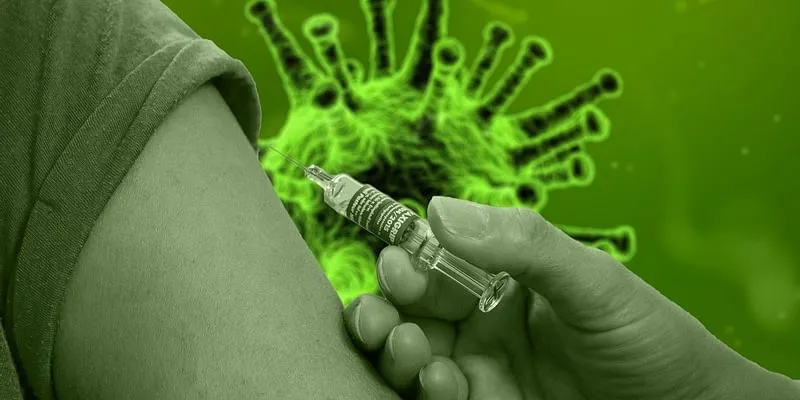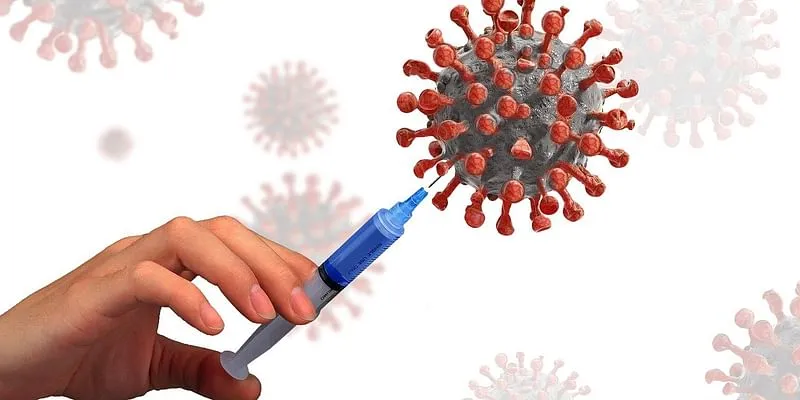COVID-19: Why are so many people against vaccination?
The number of people against COVID-19 vaccines seems to rise the more people get vaccinated. Is it a misunderstanding? What's the basis of their argument?
"No, no photos and no names, please! I'd rather not be labelled as some crazy conspiracy theorist. I just don't want the vaccine!"
It's fair enough, I think. So, fine. I say we'll call them Richard and Susanne.
I met the pair in a park on the outskirts of Cologne. Richard works in the packaging industry, and Susanne works in admin at a hospital. Both are in their 50s, so I'd say they belong to one of the high-risk groups for COVID-19.
We agreed to meet because I wanted to know why they were against getting vaccinated. I, myself, have recovered from a COVID-19 infection, and am vaccinated.
I've written a lot about the virus and its vaccines. And I've been wondering why some people don't want to get vaccinated. What are their concerns? Where do they get their information, and how do they argue their case?
Doubters on the rise
"I feel that a vaccine is a huge intervention in my body. Everyone should make this decision for themselves. And just because you don't get vaccinated, it doesn't mean you're irresponsible or tired of life," says Richard, and Susanne nods in agreement.
The pair is not alone — others feel the same way. It's true that in Germany, more than a third of the population (38.9 percent) is fully vaccinated and more than half (56.5 percent) have had at least a first shot. But the rate of vaccination is slowing down.

Image source: Pixabay
Richard and Susanne wouldn't say they were against vaccines as such. They got the standard vaccines when they were kids. But they say they don't trust the vaccines for COVID-19.
Their friends and acquaintances don't get it. They say they have experienced rejection and a lack of understanding.
"They think the vaccine makes them immortal. But they could still get infected, despite the vaccine," says Susanne, indignantly.
Calculated risk?
But a vaccine can lower your risk of a severe infection, I say.
"That may well be, but it's no more than a risk-benefit-analysis. You can get infected with anything, anytime, but even if it happens," says Richard, "I have a lot of colleagues and friends who've had COVID-19 and their symptoms were either weak or it was just like a normal flu."
Susanne jumps in: "You hear these stories about severe cases and deaths in the media. That people have died either directly or indirectly because of COVID-19. But if you then ask how old they were, you find out they were already 87 or something. It just doesn't convince me to get a vaccine."
Germany's Federal Statistical Office (DESTASIS) says there were about 36,300 deaths from COVID-19 in the country last year.

Image Source: Unsplash
In its most recent report, DESTASIS says that in about 30,100 cases in 2020, COVID-19 was the cause. And in a further 6,200 cases, COVID-19 was an accompanying disease.
Many of those who died due to a COVID-19 infection were indeed older or elderly people. But they weren't the only ones who died.
But it also has a lot to do with how you live, say Richard and Susanne: "We don't live in the city, we don't go to any clubs, and we don't hug everyone we meet. I think we can calculate our risk."
COSMO Study on vaccine willingness
People's willingness to get vaccinated in Germany is falling. In a study called COSMO, 41 percent of those asked said they wanted to get vaccinated. That's much lower than at the start of June when 57 percent of participants wanted to get vaccinated. Run by the University of Erfurt, with the Robert Koch Institute and other research bodies, the study involved 1,011 people.
Many were inclined to weigh the pros and cons, just like Richard and Susanne. They lacked trust in the vaccines or they felt they needn't bother with so many other people vaccinated.
"If you're worried about COVID, get vaccinated. But the chances of my getting infected are a lot lower now that so many other people are vaccinated," says Susanne.
Distorted images in the media?
Richard and Susanne also feel the media has exaggerated the risks of COVID-19. "It's always the same experts and always the same opinions," says Richard.
"Naturally, the images out of India were shocking, but can we really compare our situation with theirs? Just look at the hygiene standards there and the terrible state of their hospitals! I bet almost every disease turns into a catastrophe there. But that's not the case here," he says.
And Susanne picks up the lead: "Take all that wrangling about AstraZeneca. There were conflicting statements. Or mix-and-match vaccinations. The STIKO (Ed.: Germany's Standing Committee on Vaccination at the Robert Koch Institute) was totally against mixing vaccines at first. Now, it's okay. And vaccines for kids. In America, they tried it on a few hundred kids and based on that the FDA (Ed.: US Food and Drug Administration) decided it was okay to vaccinate all kids and young people. Some European countries see it like the US, but the STIKO thinks it's too risky. And that's 'based on science' is it?"
The two of them seem pretty wound up as they bat the arguments back and forth. You can tell that they have often had to deal with prejudices and critique.
"We've definitely spent more time thinking about the issues than someone who's naively taken the jab," says Susanne.
Vaccination as a job requirement
The researchers behind the COSMO study say vaccination programs in workplaces or the education sector may improve access to vaccination. In their report, the experts write that that would make it easier to reach groups of people who are in contact with lots of other people.
When I suggest that some employers may even want to make vaccination mandatory, Susanne and Richard get pensive.

Image source: Pixabay
"That would be a problem," says Susanne, "because I could get vaccinated through my employer right now. Not everyone wants it, but it is conceivable that our employers might demand it. And if you refuse, they may see that as grounds to make you redundant or not extend your contract. They do that in Russia. It probably wouldn't be legal here, but it is possible."
After that, there's a moments' silence. We watch the other people in the park, who seem to be enjoying their reclaimed normal lives.
Parting words
"Stay healthy," I wish the two as we part.
They nod, a little agonized: "You too," they say. "And please don't write us up as crazies. We just feel that everyone should be able to decide for themselves whether they want a vaccine or not. This is our decision, our risk, and everyone else should just accept it."
I leave the two sitting in the park and start to wonder whether I should have tried to persuade them to change their minds. And if so, how? I wonder whether their vaccine status is in any way my business or whether they really should be allowed to decide for themselves.
What I've learnt most through our conversation is that Susanne and Richard are annoyed about confusing information in the media and one-sided reports and that that has made them feel anxious or insecure about the situation.
But I still don't understand a lot of their arguments. And my counterarguments don't seem to have moved them much, either. It leaves me confused, with a lasting feeling of incomprehension — probably on both sides.
(This article by author Alexander Freund was originally published on Deutsche Welle.)
Edited by Suman Singh








